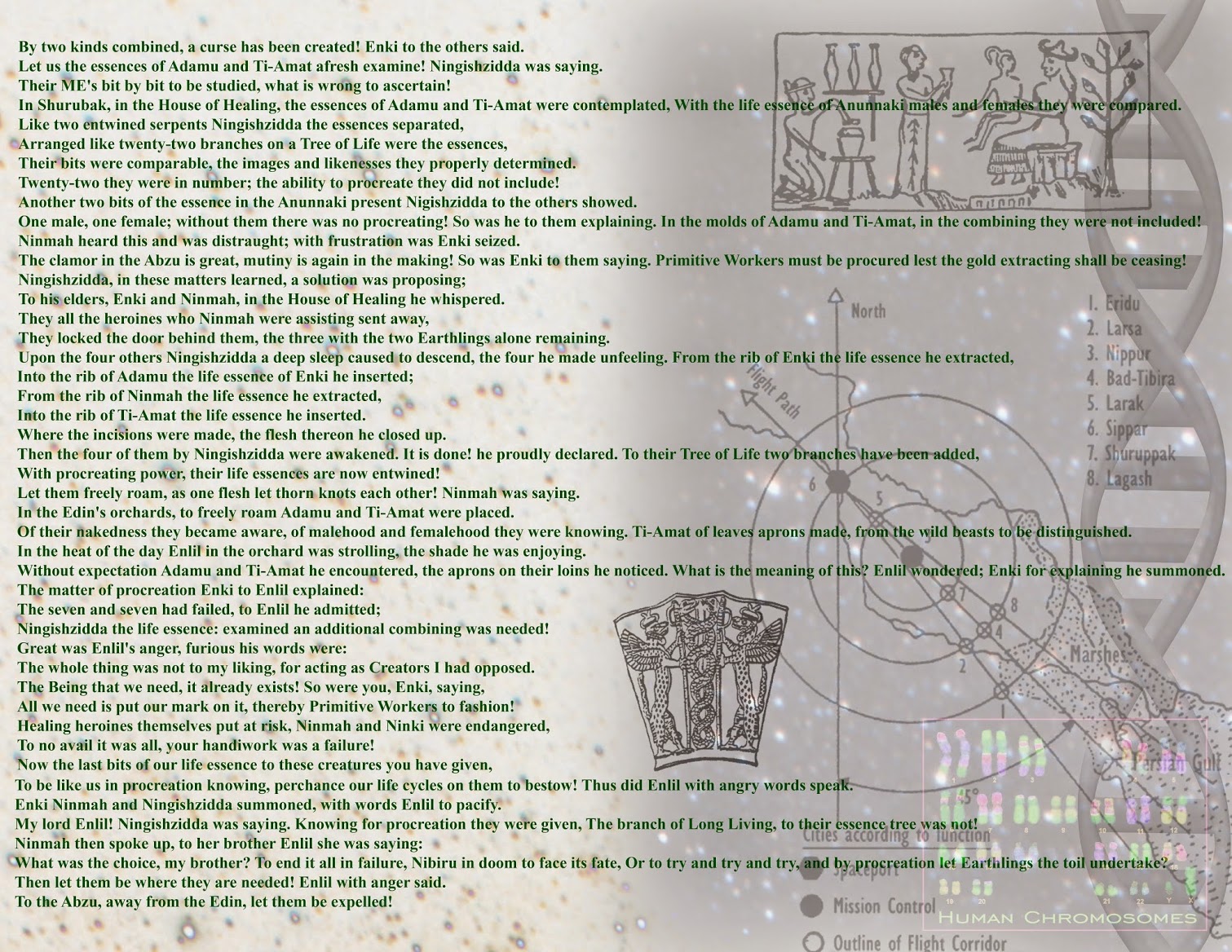Sometime during the 2012 presidential election campaign I decided that I needed to do some serious reading in order to really understand the state of our world. I was determined to “get to the bottom" of the Abrahamic religions and why there has been so much blood shed between the followers of Judaism, Islam and Christianity.
I am still reading to this day, along with many others that are trying to understand the same thing. My quest for understanding has taken me to some places that I could have never imagined going. It seems that the quest to understand religion will most definitely lead an honest reader to several other topics, which all share a common denominator.
Religion, genetics, astronomy, politics, ancient history and human origin are just a few subjects that I’ve become familiar with over the last five years.
In this series of posts, I will share a few things on each subject I feel are worth you taking a closer look at. Here's the first one:
Ancient Sumer: the Sumerians
The Sumerians are the the first real civilizations that we know of. They lived in Mesopotamia (modern day Iraq) between the Tigris and Euphrates rivers and we're around long before the Egyptians. The left behind cuneiform writing in stone tablets that date back to 4000-4500 BCE, a couple millennia older than the pharoahs.
In these tablets, such as the Enuma Elish, they wrote general city accounting logs and documented their account of the creation of the Earth and mankind. They tell the oldest known story of a great flood brought on by the gods, very much like the one found in the Bible and in dozens of other religions around the world. In fact, it's so similar that it is more than likely the first telling of the same flood, only called The Epic of Gilgamesh.
In many of these stone cuneiform tablets, the Sumerians talk of the Anunnaki as being the creators of mankind. This is where it gets a little difficult to decipher fact from fiction, mainly because cuneiform is not studied by many and hasn't been since most of the people who could read it died in the first world war. However, in the translations by Zechariah Sitchen, we get a fairly detailed account of the origin of the Earth and the creation of humans.
There is a very intriguing story about how the Anunnaki (those who came down from heaven) came to Earth from their home planet of Nibiru in search of gold. They desperately needed this gold so they could use it to repair the atmosphere of Nibiru that they had nearly destroyed during a war. They are said to have altered the DNA of primitive Earth monkeys to make them smart enough to use the tools needed to do the mining for the gods.
Since Sitchen has passed away, his translations have come under some scrutiny from the mainstream scientific community. There are translations from other scientists that are different than Sitchen's. There are however a couple of reasons in particular I think it's worth another look.
If you look into gentics, you'll find that modern genetisists agree that there was some major change in our DNA that seems to only have been possible if it were done intentionally by an outside force. Their estimate of when this occurred coinsides with the Sumerian accounts of the creation of man.
Secondly, Sitchen's translations mention Nibiru as an additional planet in our solar system that has an oblong orbit, meaning it only comes close enough to Earth for us to be able to see it every 3,000-4,000 years or so. If you follow astronomy closely you'll know that scientists have now basically said that yes, there indeed is a large object with an odd orbit somewhere in the solar system that is affecting other planets with it's gravitational pull. It has not been located to date.
That is a brief summary of a couple of the things I found to be interesting while studying the ancient Sumerians. Stay tuned for more interesting facts about quantum physics and holographic cosmology!
